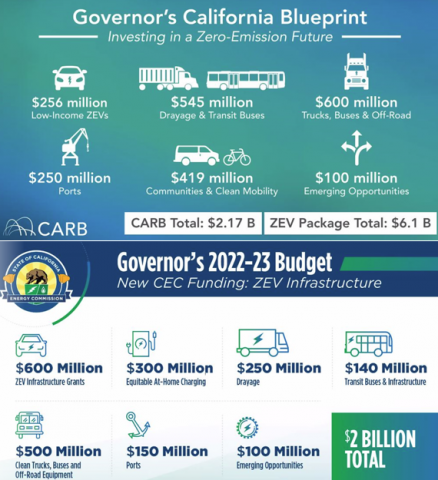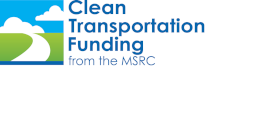
Governor Newsom’s 2022-23 proposed State budget calls for a historic $6.1 billion in funding for clean transportation investments. Combined with last year’s budget of $3.9 billion for clean transportation funding, California will invest a record $10 billion over the next five years to help clean up vehicle pollution throughout the state.
Zero-emission passenger vehicles will receive $2.38 billion in funding. This will include programs such as the Clean Vehicle Rebate Project, Clean Cars 4 All and other equity projects, ZEV fueling infrastructure grants, and equitable at-home charging.

For medium- and heavy-duty vehicles, $5.96 billion in funding has been allocated. This will include funding for clean-fueled drayage trucks, transit buses, school buses, off-road equipment, and supporting infrastructure. This also includes $400 million to the Ports to help electrify their transportation systems.
This funding will be directed to two agencies – the California Air Resources Board (CARB) which funds clean fueled vehicles, and the California Energy Commission (CEC) which funds infrastructure to support these vehicles. CARB will receive $2.17 billion for vehicle projects, while the CEC will receive $2 billion to spend on infrastructure.
For the state’s transportation infrastructure package, the budget allocates $9.1 billion to support high-speed rail, regional transit and rail projects, bicycle and pedestrian projects, and climate adaptation projects, with a focus on aligning the state’s transportation system with its climate goals. This includes $1.25 billion specifically for Southern California transit and rail projects.
Additionally, clean transportation investments are being directed to the goods movement sector. General Fund allocations include $1.2 billion for improvements to the state’s port, freight and goods movement infrastructure, and $1.1 billion for other related areas, including workforce training and ZEV equipment and infrastructure related to the supply chain.
The next iteration of the budget, known as the “May Revise,” will be released in mid-May.
